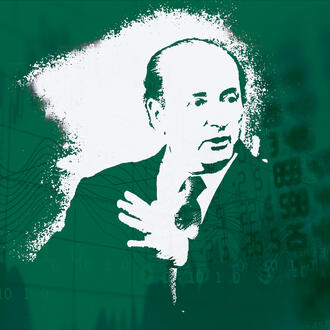Ideas Made to Matter
Economics
World Bank economist: Despite gains, Latin America still faces “old growth problem”
There’s business momentum in Latin American these days. During the 18th MIT Latin American Conference March 7 on campus, a venture capitalist spoke of public-private partnerships in several countries gaining real traction, a trio of social entrepreneurs reported good relations with local governments, and a World Bank economist reported a record shift in the poor moving to the middle class.
But that positivity was tempered with a sense of fragility in a region that’s historically plagued by social inequality, weak networks of trade that hamper growth, and obstacles to innovation. Augusto de la Torre, chief economist for Latin America and the Caribbean at the World Bank, said he is often asked to address business leaders in Asia about Latin American economics, but “they never ask me to speak about growth. They know we know nothing about it.”
“Essentially, the short story is that Latin America is being pushed by strong, favorable international factors,” de la Torre said. “Fuel prices, interest rates, the eruption of China in the global economy—the stars are aligned. Now we’re back to a Latin America being face to face with old growth problems.”
Through a history that includes economic isolation post-World War II and political upheavals from dictatorships to democracies, "we have been busy solving macroeconomic stability and have forgotten about growth.”
On the positive side, de la Torre said Latin American countries overall are seeing some improvement in income inequality. But, he said, where a person is born “still matters too much” in terms of earning potential. Income of the poor has risen sharply, faster than other income levels, and Latin American countries overall are showing a shift of population at poverty level from above 50 percent to nearly 20 percent in recent decades.
But that shift has yet to lead to improvements in critical systems like education and law and order that lead to social inequality. Those moving into the middle class tend to move their children out of public schools and into gated communities with private security, and leave concern for public education and police behind, de la Torre said. And Latin America still suffers from weak trade networks, he said.
“Latin America does not grow because it does not create the connectivity that other regions do,” he said.
For conference organizer Javier Irigoyen, a 2015 MIT Sloan MBA candidate, that connectivity is the mission of the conference, and of many from Latin America who find each other in the business education community.
“The great message is that the only way to be successful is in working together,” said Irigoyen, who is from Chile. “Every time a Latin American student comes to Sloan, he gets involved. That sense of union is something we want to empower.”
“We struggle a lot with innovation,” he said. “There are so many dimensions to that. We’re a culture that does not foster innovation. There is a struggle with business and politics, and every time you ask an investor, this is an issue. Venture capital is present, but it’s still immature.”
Closing the conference, MIT Sloan applied economics professor Roberto Rigobon asked attendees to consider the factors that have made countries rich, namely strong institutions that foster invention and innovation.
“You are rich if you have good institutions and poor if you have bad institutions,” he said. “Rich countries became rich following a pragmatic process that required experimentation.”
The conference began with competition among startups, with a pitch contest attracting 21 teams from the MIT community. Smile and Learn, an MIT-born company developing educational iPad apps for children in Spanish and English, won the $4,000 grand prize.



